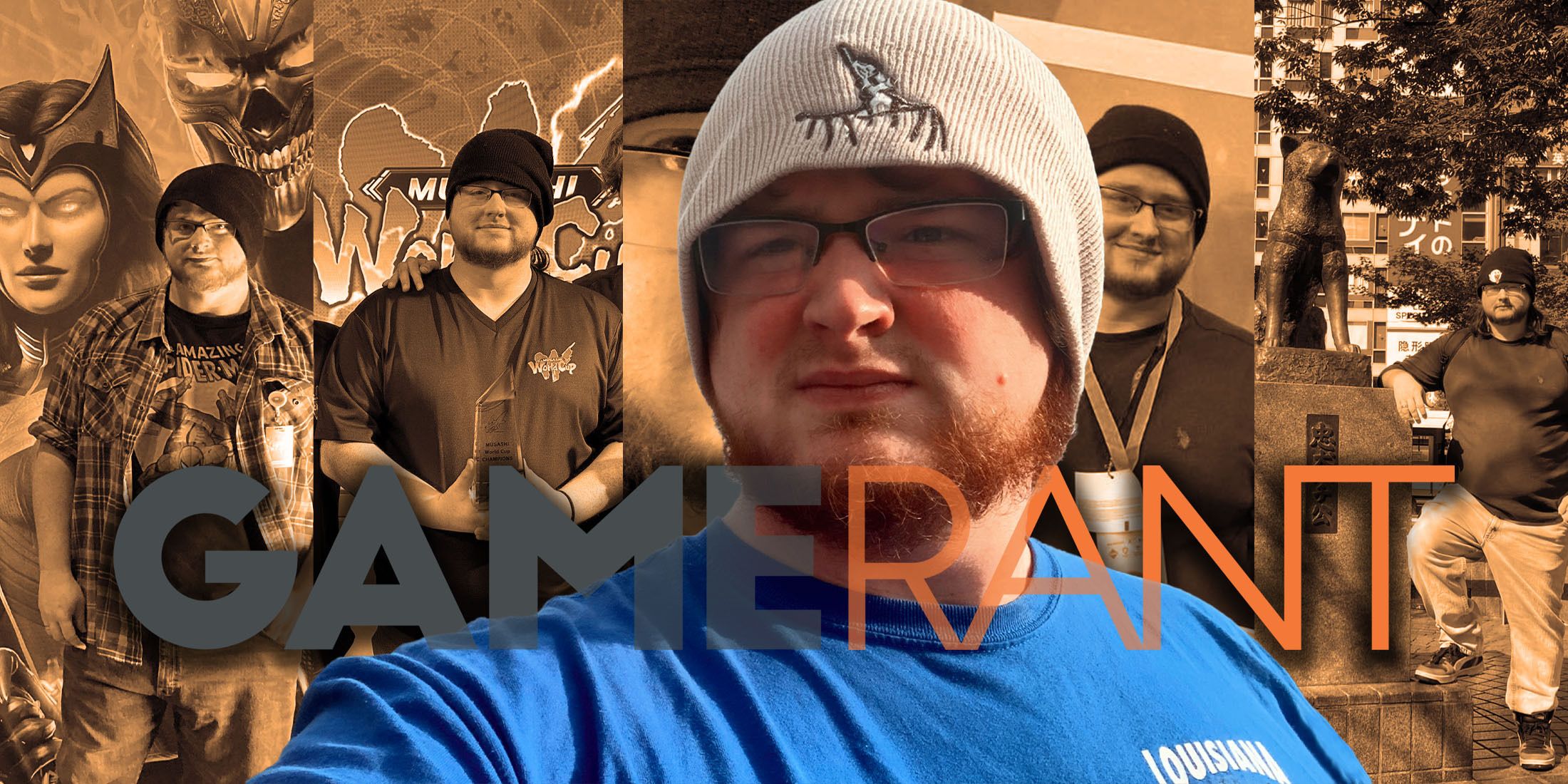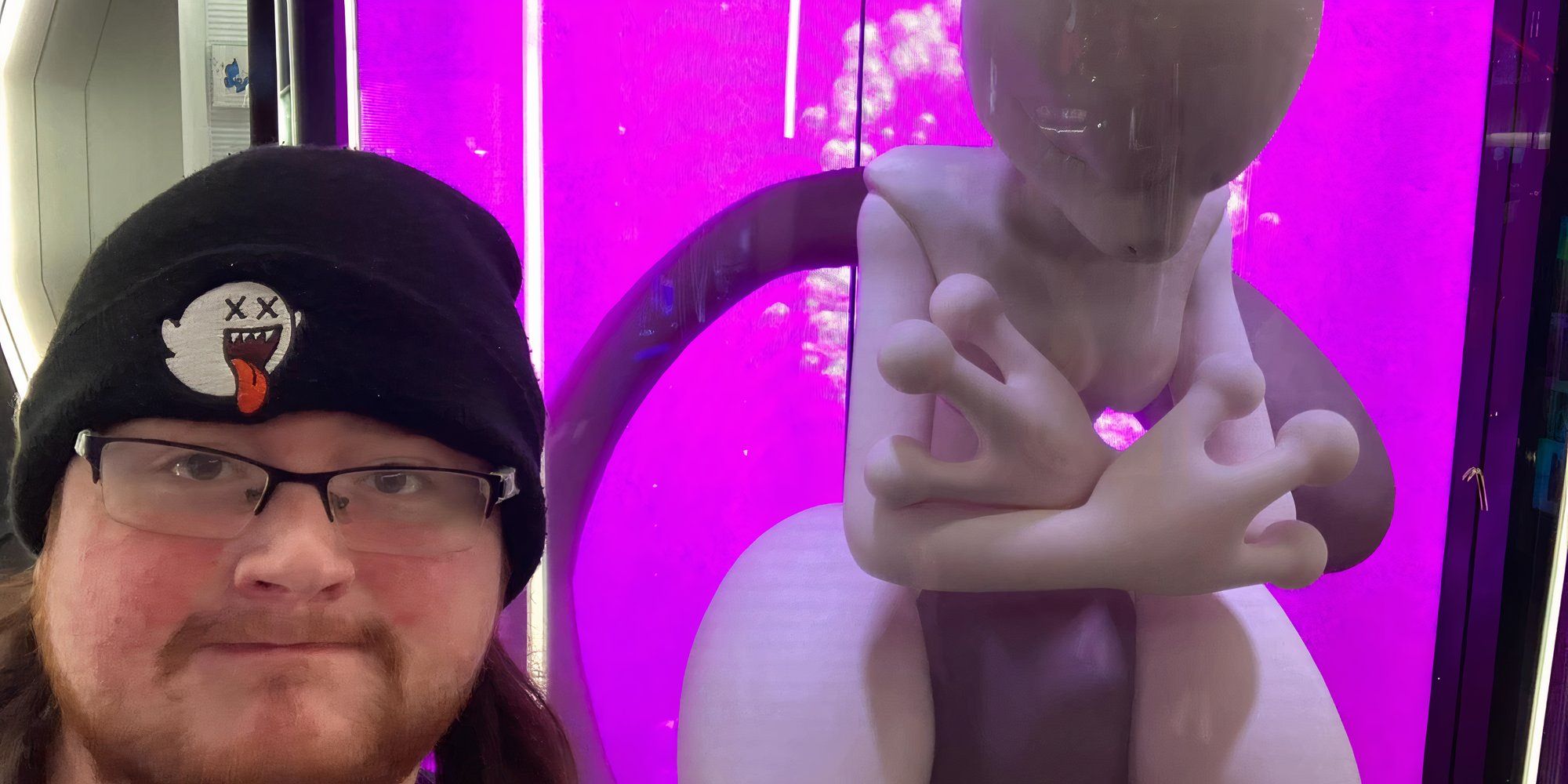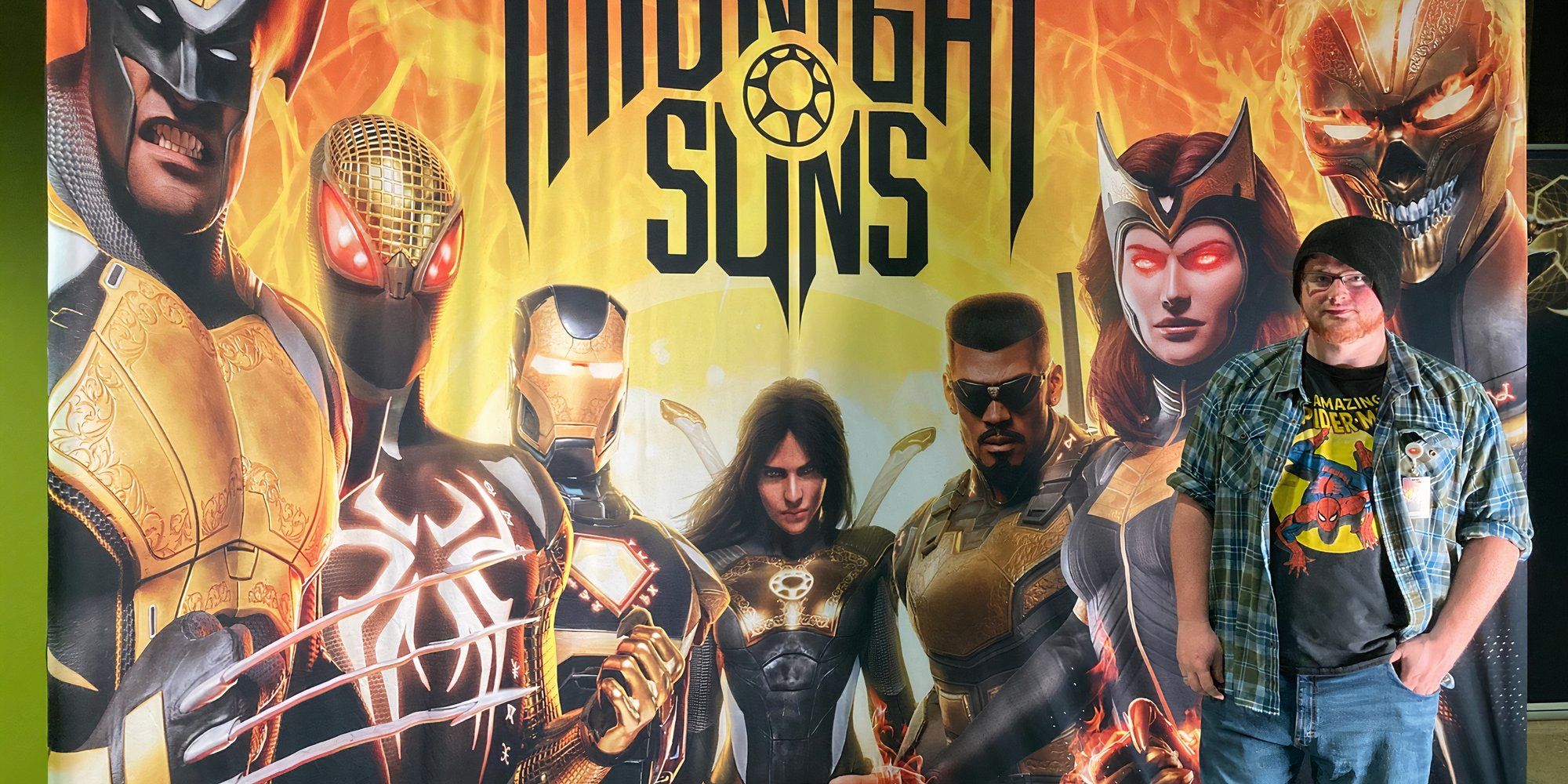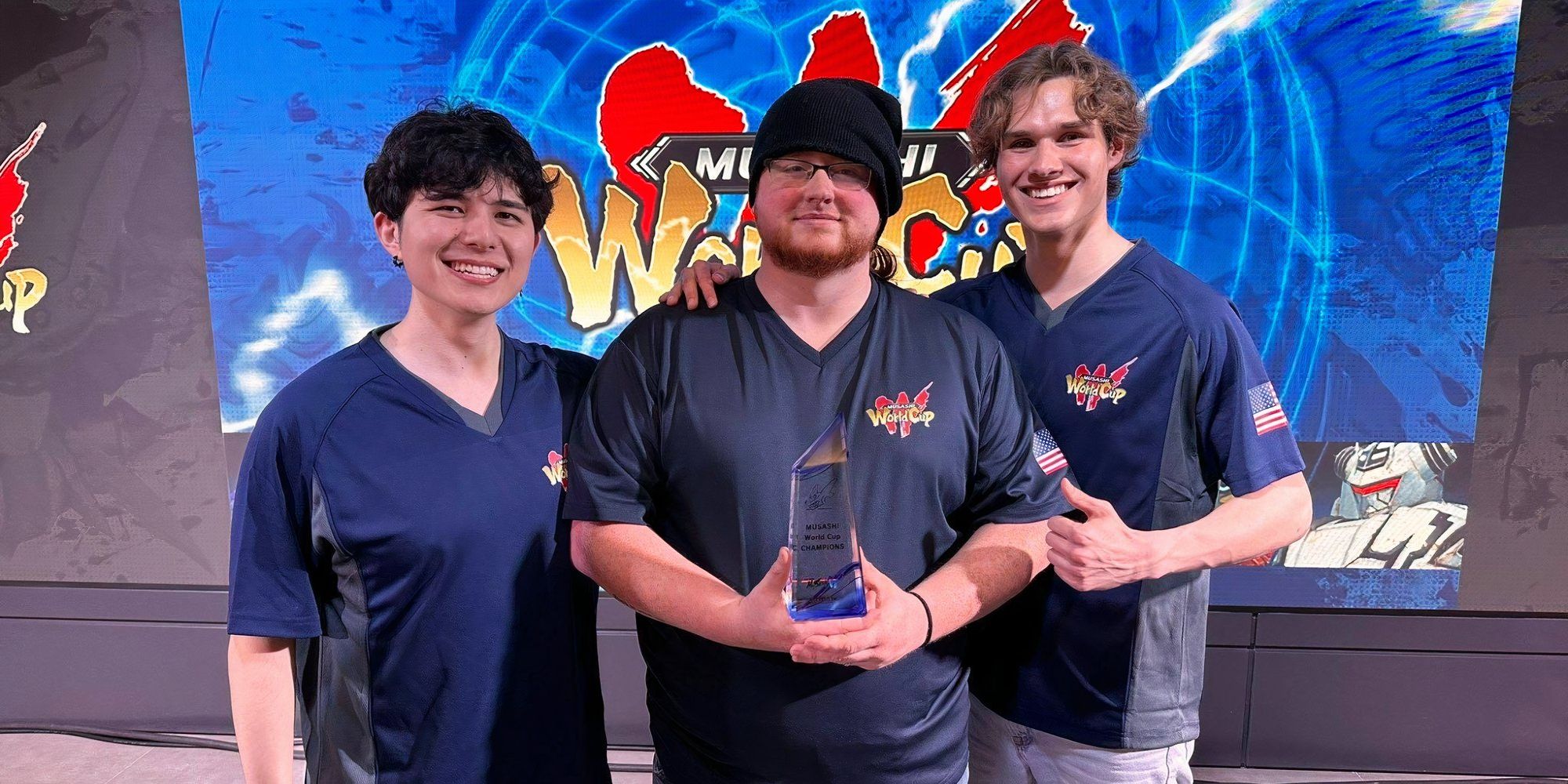
One piece of advice that has stuck with me over the years is the importance of “finding your people.” I’ve heard this from family, teachers, professors, industry colleagues, and basically everyone important in my life. But, as a severely introverted kid, that’s never been easy for me. The first time I found my people was in digital worlds like Runescape, and I realized my “Journey” would be finding them through video games.
Several years later, I was in grad school at Jacksonville State University to get my Master’s degree in English. I was working at a gas station at the time and recall thinking to myself that it would be nice to use my Bachelor’s degree and get a writing job even while I was still going to classes. It was almost like fate with the way I stumbled across a Game Rant Facebook post saying it was looking for writers at this time. I had followed the site prior to this time, but the idea of combining my passion for gaming with my passion for writing had somehow never crossed my mind before. In my head, I guess I always considered them two different worlds. Getting hired at Game Rant brought those two worlds together in my own “Split Fiction.”
Early Days: Humble and Learning
My earliest days at Game Rant were defined by learning a lot about the media side of the industry. It was my first job in this industry, and nearly eight years later, it is still my only job in this industry. I learned quickly, realizing that these two worlds were more like a universe and stepping into it had a “Mass Effect” on me. I’ve always followed game releases closely, so that part wasn’t new. I’ve always written in an academic manner, so I understood the logic of Game Rant’s style guide.

I immediately loved how we italicize video game titles, paying them the same respect that academia pays to literary works. Learning the ins and outs of the media world was new, genuine readership was new, and putting my name out into the world was new. Luckily, I was guided through this by our excellent editorial team, including Editor-in-Chief Anthony Taormina and now-Managing Editor Dalton Cooper.
Because I was so new to this world, I never really realized how small and scrappy we were. What everyone did, we did for the love of video games and the belief that Game Rant was something special. That might sound like a cliché, but it was true. We always made it work, despite our size, because of how “Grounded” our love and faith were. Then, something changed: Valnet acquired Game Rant in 2019.
I remember being incredibly nervous at first (because I always am about any big changes), but Valnet quickly proved it believed in our goals and our vision for the site. That belief has gone a long way. Valnet immediately gave the site resources to pursue new avenues and to promote more people to editorial, including myself. It was within a month of the acquisition that I received an offer, and it wasn’t long after that when Anthony asked me to lead our new feature initiative.
Becoming an Editor: Writing About Everything We Saw Before Us

To me, there has never been a video game detail so small that it wasn’t worthy of deep analysis. That, I believe, is the beating heart of a Game Rant feature, and that is the direction I took for our new initiative. Whether it was unpacking the incredibly detail-oriented world of Red Dead Redemption 2, musing about the importance of colon placement in Star Wars Jedi: Fallen Order, or tracking patterns in PS Plus, my feature team was all over it.
The support from Valnet expanded our coverage horizons in ways I could have only dreamed, but something was missing. Another key aspect that drove my feature decisions was the “Breath of the Wild,” so to speak. I love speaking to people about video games; it was honing in on what I realized we were missing: speculation.
When my friends and I spoke about video games, we often talked about what we imagined would happen one day. Speculation and hype, for better or worse, are a driving factor in that industry. We began to attach grounded, realistic speculation to our analysis. After Red Dead Redemption 2, what would Red Dead Redemption 3 look like? After Assassin’s Creed Odyssey, what would the next game be like? After Persona 5 Royal, what would Persona 6 be like?
This approach worked, took off, and took us to unbelievable heights. It worked because players will intuitively ask “what’s next?” after rolling credits.
Backed by more resources than ever before and freedom to pursue our creative desires, we turned a small initiative into a powerful workhorse. As lead feature editor, some of that credit is mine, sure, but I have very specific beliefs about leadership. The “Call of Duty” for any leader is to be on the frontlines alongside their soldiers, not hiding safely in a camp and barking orders through other commanders.
I was on the field with them, but if not for writers like Anthony Puleo, Marina DelGreco, Charlie Stewart, Ramon Hara, Cameron Swan, Liam Ferguson, Max Borman, Lauren-Beeler Beistad, and Josh Cotts, then the feature team would not have built everything it has so far.
Becoming a Leader: Empowering Your Voice

The feature team developed naturally over the years I’ve been here. Building this initiative remains some of my proudest work, but I would be lying if I said my proudest work wasn’t still ongoing. While I still oversee the feature operation, I’ve taken on increased responsibilities in recent years, including a promotion to executive editor. I’ve worked closely with Anthony on expanding our interview initiative, building up our preview and event coverage, and establishing Game Rant Advance.
Interviews
With every interview, we give developers the chance to speak about their passions. If there’s one thing I’ve learned about developers, it’s that they are some of the heartiest people I’ve ever met. Their passion, their dedication, their voice is something irreplaceable and sometimes “Uncharted” in other industries. Despite the various challenges and hardships of this industry, you can always hear the unfiltered love for video games laced into every word. We’ve always listened to developers, whether it’s the people behind Fallout 76, Baldur’s Gate 3, Dragon Age: The Veilguard, Dying Light, Final Fantasy 14, or Avowed, to name but a few, and we will always listen to developers.
When I say we’ll always listen to developers, I don’t just mean those on the AAA side of the industry either. I’m also proud to say that our indie initiative is larger than almost any other general publication that I’m aware of and quite “Celeste-brated” here at Game Rant.
When I began expanding our interview initiative, we were maybe publishing one a week. We recently published 40+ interview sets in a single month, and my team is always firing on all cylinders. Nothing I’ve accomplished at Game Rant can be solely attributed to me; it has been a “Destiny 2” all of us. Our industry reporters are the real powerhouse behind this initiative. Now-editor Joey Brown, Katelyn Mitchell Jewett, and Dan Amoroso are just a few names spearheading this initiative.
We’ve spoken with incredible indie developers over the years, with One Fenix Down, Bionic Bay, Hyper Light Breaker, Koira, Harmonium, Valley of Shadow, and Rogue Legacy being just a few games that come to mind. Helped bring a character to life? We’ll always listen to actors too, with Alix Wilton Regan, Roger Clark, Neil Newbon, Stephen Oyoung, Lee Majdoub, Stewart Clarke, Meli Grant, and Patricia Summersett to name a few. The easiest way to learn is to listen, and we’re always listening to the voices of the industry, whoever you are.
Previews and Events
Even before I was a media member, I wanted to visit E3. I remember watching it on my TV in the years before I had reliable access to the internet, but I was born too late and didn’t get into this industry soon enough. E3 may be gone, but the spirit of games always finds a way to manifest. Over the years, many colleagues and I have represented Game Rant at events like Summer Game Fest, Gamescom LATAM, Gamescom, and press summits. We’ve attended hundreds of hands-on events, from Baldur’s Gate 3 to Doom: The Dark Ages, and we’re always filling our calendars.
What’s wild to consider is I have never been on a plane except for Game Rant business, and I have never been out of the South except for Game Rant business. Growing up, even shortly leaving the state of Alabama was a bit of a “Final Fantasy” for me, much less visiting places like Ghent, Belgium; Tokyo and Osaka, Japan; Oslo, Norway; Cologne, Germany; São Paulo, Brazil; Montreal and Quebec City, Canada; London, England; Barcelona, Spain; and many, many more.
Game Rant Advance: Your Game, Your Voice, Your Stage

Game Rant Advance is our authoritative initiative to give developers an even bigger stage on the site. Including freshly designed hub pages, more interview content than ever before, game-wide analysis in our cover stories, and an outpouring “Portal” of passion from both writers and developers, Game Rant Advance is easily the most important, most ambitious, and most rewarding project I’ve ever undertaken in my professional career.
The Conclusion Remains Unwritten
I’m proud to have played a part in Game Rant’s growth, but the keyword there is “part.” I am nothing as a leader without the team backing me. Anthony and Dalton’s guidance remains invaluable to this day. Feature editors Richard Warren, Stan Hogeweg, Andrea Trama, Jared Stewart, Drew Swanson, and Joey Brown have all supported our shared vision and taken it further than I could have ever imagined. Our writers are a daily reminder of the passion for the industry the games media “Civilization” should have, and seeing the talents of writers in other departments…well, I would say our growth has been a foregone conclusion since day one. But a conclusion would imply an ending, and as all gamers know, why reach an ending when you can start New Game Plus, hit Continue, restart Baldur’s Gate 3 in Act 3, or play another game?
All of this is to say that, at Game Rant, I didn’t find my people—they found me.
Joshua Duckworth
Joshua Duckworth is an Executive Editor at Game Rant, where he combines a passion for storytelling with years of experience in games media. His work reflects a deep commitment to editorial excellence and the gaming community.